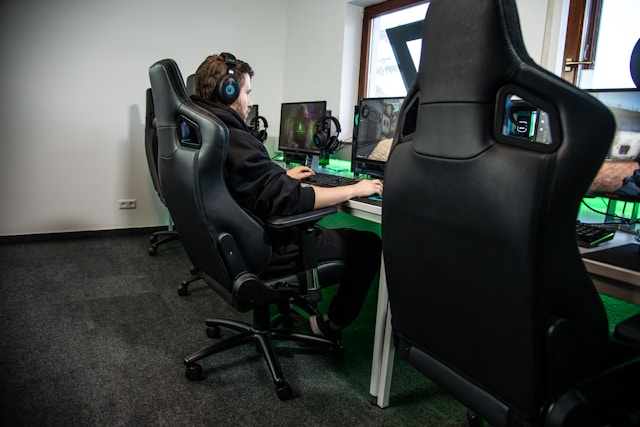Virtual reality is already reshaping online gambling, but the next decade promises even more dramatic changes. By 2030, VR casinos are expected to become not just a novelty but a mainstream platform for immersive gaming. The blend of cutting-edge visuals, real-time interactivity, and personalized features will transform how people experience digital gambling.
As VR hardware becomes more affordable and accessible, developers are exploring new ways to deliver realistic casino atmospheres that rival—or even exceed—brick-and-mortar venues. Whether you’re a casual player or a high-stakes enthusiast, the future of VR gambling is poised to offer more control, immersion, and innovation than ever before.
Here’s what players, developers, and industry insiders can expect from VR casinos by the year 2030.
Hyper-Realistic Casino Environments
By 2030, VR casinos are likely to feature ultra-realistic graphics with detailed textures, dynamic lighting, and real-time rendering that mirror real-world casinos. Players will be able to explore expansive, multi-level environments, from luxurious VIP lounges to exotic theme-based game rooms.
These environments won’t just look realistic—they’ll respond to player behavior. Advanced motion tracking and tactile feedback will allow users to:
- Walk between tables and slot machines
- Interact with furniture, game elements, and virtual dealers
- Customize the décor of private gaming rooms
This level of immersion will make the virtual experience nearly indistinguishable from physical casinos, appealing to players who crave both convenience and atmosphere.
AI-Powered Live Dealers and NPCs

The integration of artificial intelligence will play a major role in VR casinos of the future. Instead of static animations or pre-recorded interactions, players will engage with AI-driven dealers and avatars capable of holding natural conversations, reacting to emotions, and remembering past player behavior.
These AI entities will:
- Deal cards, spin roulette wheels, and manage chips with human-like accuracy
- Greet returning players and adjust interactions based on preferences
- Provide tutorials and game recommendations in real time
This personalization will make every session feel unique, with AI acting not just as a dealer, but as a host and guide through the casino world.
Social Gambling and Multiplayer Features
VR casinos in 2030 will heavily emphasize social interaction. Gambling will no longer be a solo experience—players will be able to sit at tables with friends, chat in lounges, or even attend virtual casino events together.
Expected social features include:
- Voice and gesture-based communication
- Customizable avatars and digital fashion
- Group tournaments, leaderboards, and real-time spectator modes
These multiplayer environments will foster a sense of community, turning online gambling into a shared, social activity that rivals the energy of Las Vegas or Monte Carlo.
Integration with Blockchain and NFTs

Cryptocurrencies are already a part of online gambling, but by 2030, VR casinos may fully integrate blockchain technologies for transparency, security, and digital asset management.
Here’s how blockchain might evolve in VR gambling:
- All bets, transactions, and game outcomes are recorded on-chain for verifiability
- NFT-based assets like exclusive tables, avatars, or virtual items provide ownership and tradeability
- Players can switch between tokens or currencies seamlessly within the VR ecosystem
This ensures fairness, transparency, and player ownership, all while removing traditional banking restrictions.
Biometric Feedback and Personalized Gameplay
With the evolution of wearables and biometric sensors, VR casinos may be able to monitor heart rate, gaze tracking, and emotional response to dynamically adapt gameplay.
Possible applications include:
- Adjusting game difficulty based on stress levels
- Recommending games suited to the player’s current mood
- Alerting players if signs of problem gambling are detected
These features would not only enhance the player experience but also promote responsible gambling, using technology to support wellness and prevent harmful behavior.
By 2030, VR casinos will likely redefine the boundaries of online gambling. What today feels futuristic—AI dealers, customizable worlds, and crypto economies—will become standard features in a fully immersive gambling experience.
From hyper-realistic environments to emotionally intelligent AI, VR casinos are poised to deliver next-level entertainment that’s interactive, personalized, and social. As the technology matures, the gap between virtual and physical gaming will shrink, creating a new era where the future of gambling is not just online—it’s fully immersive.
